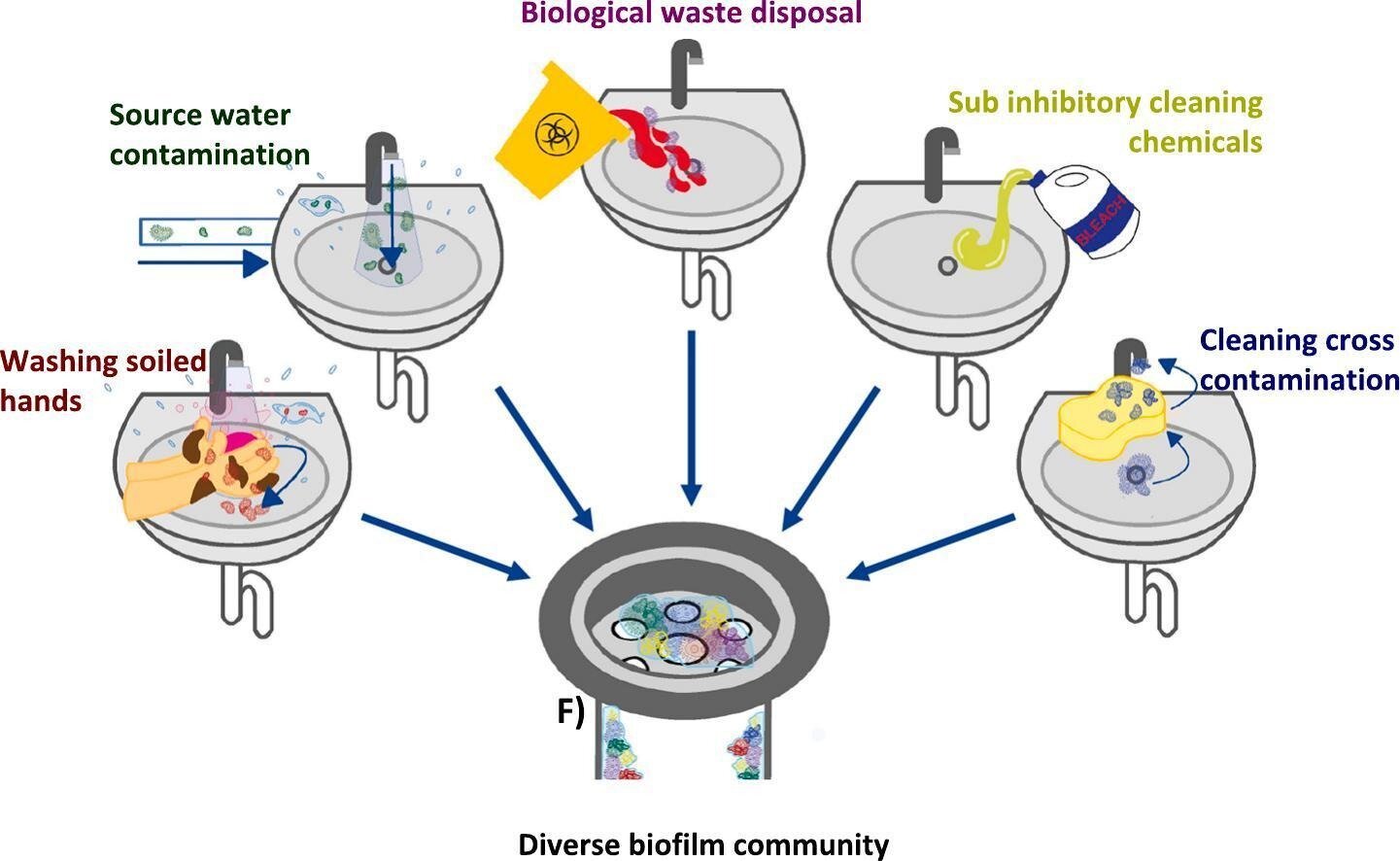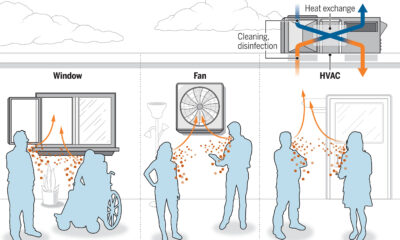Health
Washing hands is important, but is your sink clean?

Credit: Science of the total environment (2024). DOI: 10.1016/j.scitotenv.2024.175194
Washbasins are hotspots for dangerous microbes that can cause illnesses including pneumonia, Legionnaires’ disease and wound infections, a new study from Flinders University warns.
The Flinders University environmental health study found that biofilms in sinks contained a wide range of pathogens, including microbes typically found in water, and other pathogens not found in water.
“This research shows that sinks may play an important and underestimated role in healthcare-associated infections,” said Associate Professor Harriet Whiley of the College of Science and Engineering and ARC Training Center for Biofilm Research and Innovation.
“The study also found that residential sinks have a more diverse bacterial community on sink biofilms compared to hospitals.
“There was also a higher number of Legionella bacteria present in the residential samples compared to those from hospitals.”
Legionnaires’ disease is caused by Legionella bacteria, which is found in natural water bodies, spas, hot water systems, potting soil and air conditioning. A system that used water for cooling was recently linked to a major outbreak in Melbourne, affecting almost 90 people and causing two deaths.
Biofilms, a slimy substance found on drains and around sink faucets, harbor a community of microbes, including disease-causing pathogens that can pose a threat to human health.
According to the study, these pathogens are likely transferred to the biofilm of patients or staff during handwashing, from the incoming water supply, or from biological waste. published in Science of the total environment.
The new study compared biofilms in hospital and home sinks to assess infection risk levels and possible routes of contamination.
Lead researcher Claire Hayward said: “The difference in the diversity of the microbial communities could be due to more regular cleaning, use and design of basins in hospitals due to the implementation of infection control practices in healthcare.
“This poses a risk to patients receiving healthcare at home, which has emerged as an alternative to long-term hospital stays to reduce pressure on the healthcare system.
“Patients receiving health care at home should be educated on infection control practices, such as cleaning sinks and drains using effective disinfectants,” she says.
“Biofilms formed in sink faucets and drains can potentially harbor pathogenic microbes and increase the emergence of antimicrobial resistance,” says Ph.D. candidate Hayward.
“In both environments we found a high abundance of pathogenic and biting germs, including some that are not normally carried in water.
“These complex and diverse microbial communities also differed depending on building type and indicate that hospitals also need more control guidelines to manage these identified areas of potential infections.”
The Australian Guidelines for the Prevention and Control of Infections in Healthcare recommend cleaning handwashing sinks with dishwashing liquid up to twice a day, along with other high-touch surfaces such as light switches, doorknobs and bed rails, at the same frequency.
Researchers recommend further research into cleaning protocols and sink design to reduce risks.
More information:
Claire Hayward et al, Handwashing sinks and healthcare-related infections: bacterial diversity in biofilms on taps and drains, Science of the total environment (2024). DOI: 10.1016/j.scitotenv.2024.175194
Quote: Washing hands is important, but is your sink clean? (2024, August 13) retrieved August 14, 2024 from https://medicalxpress.com/news/2024-08-important-handbasin.html
This document is copyrighted. Except for fair dealing purposes for the purpose of private study or research, no part may be reproduced without written permission. The content is provided for informational purposes only.











